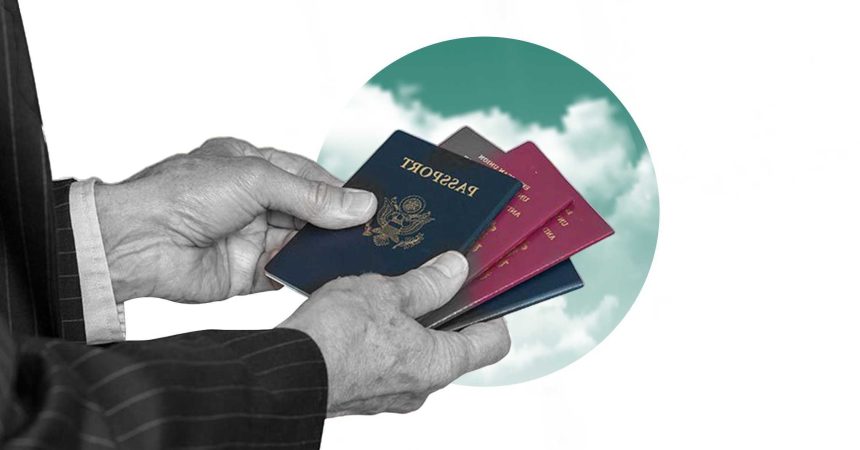Overview
Obtaining the citizenship of another country is a topic of interest to many people around the world.
There are various reasons that drive individuals to seek new citizenship.
Including searching for better job opportunities, escaping conflicts, or even the desire to experience a new life in a different environment.
However, obtaining the citizenship of another country is not an easy task.
As it requires a set of conditions and legal procedures that vary from one country to another.
In this topic, we will review the basic steps to obtaining new citizenship.
In addition to the challenges and benefits associated with this process.

Difference Between Citizenship and Residency
Citizenship grants you all the rights enjoyed by a person born in that country, such as obtaining a passport and the right to vote.
Residency differs in some respects; while it grants you the freedom to travel freely across the country and work there, it does not give you all the rights that a citizen may enjoy.
Moreover, temporary residency lasts for a specific period, while permanent residency has no time limit.
Some countries offer long-term visas as a means to obtain residency—but not citizenship.
These visas are usually granted in exchange for investment in the country’s economy.
Where individuals contribute to government-sponsored programs or invest in real estate to benefit from these long-term visas.

Golden Visa
Besides UAE, Portugal, Spain, and Greece are popular destinations that offer golden visas.
Spain issued around 800 golden visas in 2024.
In addition to golden visas, there are citizenship by investment (CIP) programs.
Those citizenships can grant you a passport if you invest in their economy or pay fees to that country.
There is a type of visa that allows people to live and work in the country while continuing to pay taxes to their home country.
Estonia, Germany, and Norway are among the prominent countries offering such visas.
Citizenship by Investment
Caribbean countries like Antigua and Barbuda, Saint Kitts and Nevis, Saint Lucia, Grenada, and Dominica offer citizenship by investment programs.
Cambodia, Singapore, and Australia also offer citizenship by investment programs.
Mentioning that Cambodia is one of the cheaper options, with investments starting at $245,000.
Singapore’s program requires a $7 million investment for a two-year residency program.
While Australia offers the program only to highly skilled individuals with a net worth exceeding $1 million.
Countries like Turkey, Greece, Hungary, and Brazil also offer golden visa programs.

Obtaining Citizenship Laws
The laws of obtaining citizenship vary from country to country based on a set of legal, political, and social factors.
Here are some examples of how these laws differ:
Residency Duration:
In the United States, applicants for citizenship must be legally resident in the country for at least five years.
In other countries, like Canada, citizenship can be obtained after three years of permanent residency.
Language and Culture:
Some countries, like Germany, require passing language and culture tests as part of the citizenship process.
In other countries, like Argentina, language requirements may be less strict.
Brand Dubai, the creative arm of the Government of Dubai Media Office, in partnership with Dubai Electricity and Water Authority (DEWA), has officially unveiled the Zayed and Rashid mural, the world’s largest modern mosaic mural, according to the Guinness Book of World Records,… pic.twitter.com/DBWMN9bnCF
— UAE Voice (@uae_voiceeng) November 26, 2024
Financial Investment:
Some countries, like Malta and Cyprus, offer citizenship programs in exchange for financial investment in the country.
Conversely, countries like Japan do not offer such programs and rely on other criteria like residency and work.
Marriage:
In many countries, individuals can obtain citizenship through marriage to a citizen of that country, such as France.
Birth:
Some countries, like the United States and Canada, follow the principle of jus soli, where children born on their land automatically acquire citizenship.
In other countries, like Japan, citizenship is based on jus sanguinis, where at least one parent must be a citizen.





